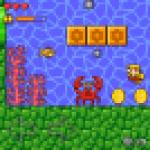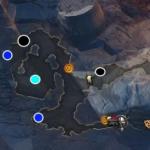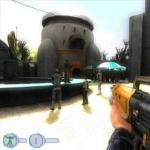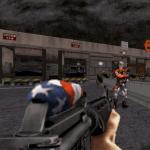An abstract classes on the topic: "Vegetables and fruits" in the senior group. Lesson in the older speech therapy group: "Lexic theme of vegetables
An abstract classes reflecting the specifics of the program for the formation of proposed-case forms.
The author presents an abstract of classes reflecting the specifics of the program for the formation of proposed-case structures. This occupation illustrates the process of forming the integrative qualities of the preschooler according to FGT, in particular communicative - consolidation of prepositions with a spatial value in the hearing and speech and visual memory, the development of word-convection skills and word-formation, connected speech.
Completeness of the front-class teacher
in the senior group for children with ONR
Topic: "Vegetables"
Purpose:
Secure the ability to use nouns in the proposed case with pretexts "B" and "on"
Tasks:
Communicative development
- Differentiate the use of predictions "B" and "on".
- Practically absorb the simplest ways of word formation, by adding to nouns of diminutive suffix.
- Secure the ability to consume the verbs of the 1st person, of the present, expressive inclination, the only number.
- Development of ability to be descriptive story by reference schemes.
Intellectual development
- Differentiate vegetables that grow in the ground and vegetables that grow on Earth
- Teach use in active speech of vegetables
- Develop sensory standards, by correlating vegetable with color and shape
- Develop arbitrary attention and memory
Social and personal development
- Development of independence, discipline, accuracy
- Develop the ability to critically assess their activities and the activities of others
- Develop the ability to work on verbal instructions
Physical development
- Develop small motor fingers hands
- Develop spatial perception
Equipment
poster "Vegetables"; toy "Grandma - Hostess"; screen; Scene picture "Garden"; Manual "Groke"; Subject pictures with a picture of vegetables; Containers with beans (for each child); dish with vessels of vegetables; the picture "Vegetables in noise"; schemes for making stories; Promotional chips.
Content of organized children's activities
1. Organizational moment
- Guys, begin a speech therapy occupation. We get up in the "Circle of Friendship" (children are taken by arms and become in a circle).
- Hello, calling each other affectionately.
(Children greet the chain, calling each other by name in a diminutive form: "Hello, Lizonka", etc.).
We smiled at each other
And they plunged into work.
- We get up in your place (children come out of the circle).
- Summates the one who visits the vegetable gentle. (Enumeration).
- We repeat the rules of behavior in class. (Children in a chain call the basic rules of behavior in the class: not to twist; be attentive; do not interrupt, listen to comrades, raise your hand if I am ready to answer).
2. Develop sensory standards, by correlating vegetables with color and shape
- They guessed that we would call in class? (Vegetables).
- Get acquainted with the guests of our classes - this is a "grandmother - the hostess." "Grandma - Hostess" will make riddles, and you - to guess. The one who gave rise to the riddle will receive a chip. They guessed, what will be the riddles? (About vegetables). Get ready to listen carefully.
- Round, red, grows on Earth. What is it? (A tomato).
- Oval, brown, grows in the ground. What is it? (Potatoes).
- Round, red, grows in the ground. What is it? (Beet)
- Oval, purple, grows on Earth? (Eggplant).
- Round, white, grows in the ground. What is it? (Onion).
- oval, green, grows on Earth. What is it? (Cucumber).
- Round, red, grows in the ground. What is it? (Radish).
- Oval, orange, grows in the ground. What is it? (Carrot).
- oval, green, grows on Earth. What is it? (Zucchini).
- Round, white, grows in the ground. What is it? (Garlic).
- oval, yellow, grows on Earth. What is it? (Pepper).
- Round, orange, grows on Earth. What is it? (Pumpkin).
- Round, green, grows on Earth? (Cabbage).
With difficulty, the speech therapist asks leading questions, provides individual assistance.
- Well done! All coped with the task well. (The speech therapist distributes chips).
- What did you guess the riddles? (About vegetables).
- What are the vegetables grow on? (Vegetables are growing on the beds).
- Name the place where there are many beds. (Garden).
- What time of year they collect vegetables? (Autumn).
3. Secure the ability to use nouns in the proposed case with the pretexts of "B" and "on"
The "Circling" allowance is postponed to the board, with slots for pictures:
- Before you - the garden "Grandma - Hostess". "Grandma - Hostess" offers, call, correctly put a vegetable on the garden and tell where it grows. For example: This is a tomato, it grows on a garden.
- We play a chain.
Children's answers: This is a cucumber, it grows on Earth. This is a pumpkin, it grows on Earth. It is a swarm, it grows in the ground. This is potatoes, it grows in the ground, etc.
- Well done! (Children get chips).
4. Secure the ability to use the verbs of 1 person, present, expressing inclination, the only number
And here is a new game
It's time to start.
- Grandmother - Hostess offers to gather a harvest of vegetables. Tell me how correctly called the actions that need to be made to collect tomatoes.
- Recall how the vegetables are cleaned, which grow on Earth. (Vegetables that grow on Earth are cut, removed, breaking).
- Recall how the vegetables are cleaned, which grow in the ground. (Vegetables that grow in the ground are twisted, digging).
- We play a chain.
- Build phrases will be like this: I break tomatoes.
Children's answers: I break the cucumbers; I dig in potatoes; I twitch twitched; I cut off my cabbage, etc.
For properly built phrases, children get chips.
5. Fizminutka
- And now the guys stand in the fizminutka begin.
Go to the garden (children march in place),
Vintage gather. (go in a circle, holding hands),
We are in carrots to Nataski ("drag"),
And potatoes Copy. ("Digging"),
We cut the kochan cabbage, ("cut"),
Round, juicy, very tasty, (show hands),
Supreme Narques a little. ("Rvut"),
And back on the track. (go in a circle, holding hands).
(N. Nishchev)
6. Develop a shallow motility of fingers
- Let's play with your fingers. (The game is carried out as follows: the connection of the fingers of the pads, starting with the little fingers, one pair of fingers for each word; while the palms do not touch each other).
The hostess once came from the bazaar.
The hostess from the bazaar home brought:
Potatoes, cabbage,
Carrot, peas, parsley and beets, oh!
- "Grandma - Hostess" offers, lay out beans, vegetables.
The speech therapist divides the children's children for 2 teams.
- The first team, laying out vegetables that grow "on" land, and the other - vegetables that grow "in" the earth.
- What is the form of tomato, cucumber, eggplant, pepper, pumpkin, etc.? (Children answer).
The speech therapist gives children containers with beans and asks each child, what a vegetable he will spread.
- Sorry, who quickly cope with the task.
1 - 2 - 3 vegetable lay out.
- And now the grandmother will check if you have laid out vegetables.
- Children call vegetables that posted and place where they grow.
For example: I posted a tomato, it grows on Earth.
- perfectly worked.
Winners get chips.
7. Develop the ability to draw up a descriptive story using schemes
The speech therapist shows a picture with rude vegetables on it.
- Find out and name the vegetables, which we will draw up stories.
- Okay!
The speech therapist hangs on the board the scheme of the story.
- These pictures will help you draw up stories.
- This picture will help name vegetable.
- This picture will help tell about where the vegetable is growing.
- This picture will help tell about the color of the vegetable.
- This picture will help tell about the form of vegetable.
- This picture will help tell about the taste of vegetable.
- This picture will help tell about what a vegetable on the touch.
- This picture will help tell about how they are preparing.
- Make a story will be on the chain, starting with Dasha. (This is carrots. Carrots grows in the ground. Carrot orange, triangular, crispy. Cuttering carrots. Carrot - extinguish).
The speech therapist is achieved by each child a consistent compilation of the story.
- Well done! All coped with the task. (The speech therapist distributes chips).
8. Generalization of the material studied and summing up the classes
- What have we called in the classroom? (Today we called vegetables at the lesson).
- Where the vegetables that I list are growing: tomato, cucumber, eggplant, zucchini? (These vegetables are growing on Earth).
- Where the vegetables that I list are growing: potatoes, radishes, coarse, onions, garlic, radish? (These vegetables are growing in the ground).
- Well!
- Consider your chips.
The number of chips scored for all the occupation of chips is calculated, and in accordance with this, it is estimated to be the work of each child. A child who scored more chips becomes a "smart", winner of classes. The choice of "clever" makes children with a speech therapist. The choice is justified.
- The occupation is completed.
Stepanova Oksana Vladimirovna
Continue skillfully perform certain movements of the language, lips, teeth, when performing articulation gymnastics.
Continue to replenish the vocabulary of the appropriate lexical topic - "Vegetables".
Learning to select verbs denoting actions when cropping and harvesting.
Learning to form verbs from the color of the color of vegetables.
Continue learning to coordinate numerical
Continue to produce skill: a slow deep breath through the nose, delay the breath and smooth exhalation through the mouth.
Developing:
Develop attention, memory, the ability to build offers.
Correctional:
Correct pronunciation, intonation expressiveness.
Equipment:
Subject drawings on the topic.
Dictionary: Planted, watered, stole, loose, harvest, bucket, watering can, shovel, rake, potatoes, cucumber, peas, onions, cabbage, carrots, green, blush, yellow, shine.
The course of speech therapy classes in the senior group of kindergarten
1. Organizing time.
What season?
What changes in nature?
Children perform articulating gymnastics Under the appropriate words speech therapist.
Our tongue was resting for a long time and decided to look out of my house.
Then he greeted his chin, then said hello to the bottom lip.
I looked left, right - exercise "Clock", and decided to work in the garden.
It is necessary to beat the tree, so the tongue turned into a "shovel".
But it is necessary to collect the garbage, and here our tongue came to the aid of the upper teeth - they became like "robberry". Top teeth skillfully worked with the tongue.
Trees thanked the good owner.
And in the garden, the tongue visited, and there watermelons and cucumbers - (inflate the cheeks and on the contrary), they ask for water, and they should urgently pour. The lips helped the tongue and turned into a "tube", and then rather smiled.
And the tired tongue returned home.
3. Respiratory exercises.
Exercise "Aroma" - a slow deep breath through the nose - breathing delay - smooth exhalation through the mouth.
4. Didactic game "We will grow crop."
Children, remember what vegetables are?
To grow vegetables and assemble a rich harvest of vegetables you need to work a lot on the garden. What do we need for this? We post pictures:
Watered
Weed;
Loosen;
Harvest.
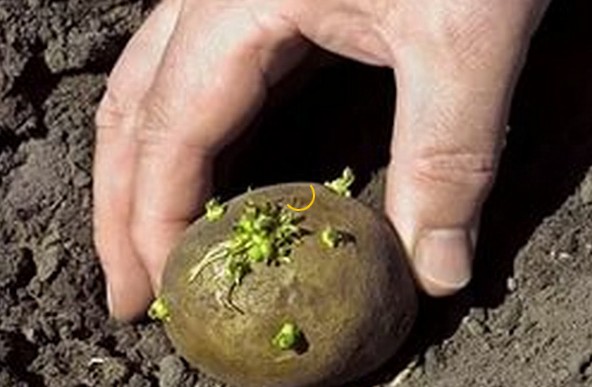
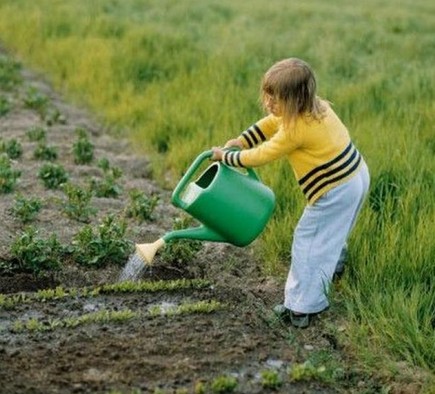
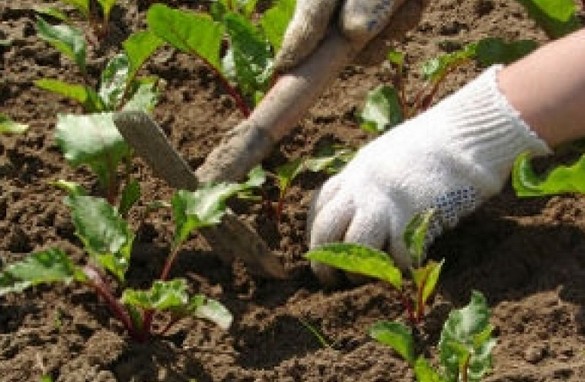
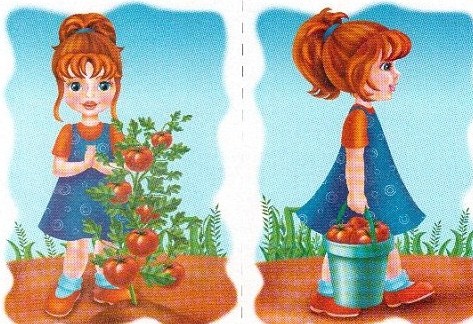
And in order to plant, water, loose, we need auxiliary items (on the board hang auxiliary pictures):
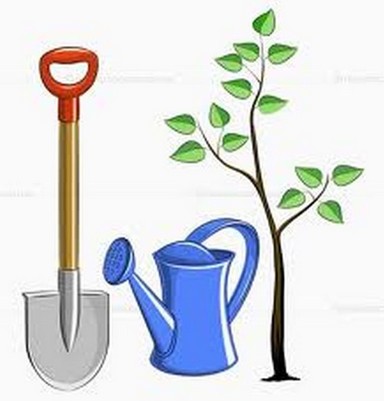
Name them and tell me what they do?
The shovel dig up the land.
Rables loose land.
In the bucket wearing water.
Watering watering water.
5. Didactic game "We-Crajakat"
And now we will be small chefs. Each on the table has envelopes, and in them pictures of vegetables that we need to prepare lunch. Consider vegetables and tell me how much we need. For example:
Three carrots
Five tomatoes;
Two peppers;
Four eggplant;
One bulb;
Five potatoes;
Two cabbage.
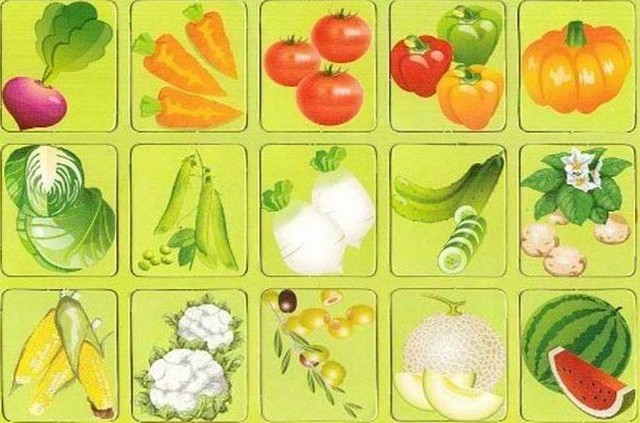
6. Didactic game "Replace a picture word".
Carrot soup;
Salad with cabbage;
Salad (with what?) With tomato;
Pies with cabbage;
Borsch with beets;
Soup with potatoes.
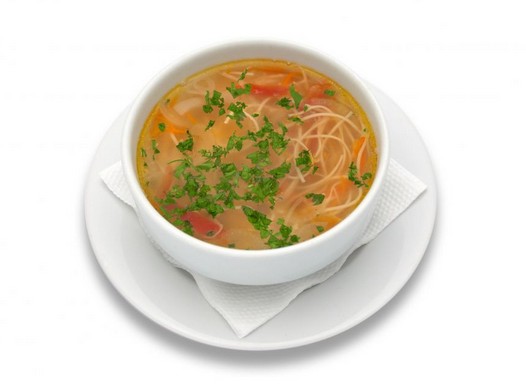
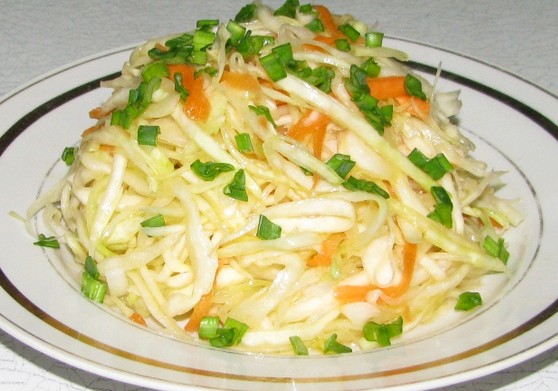
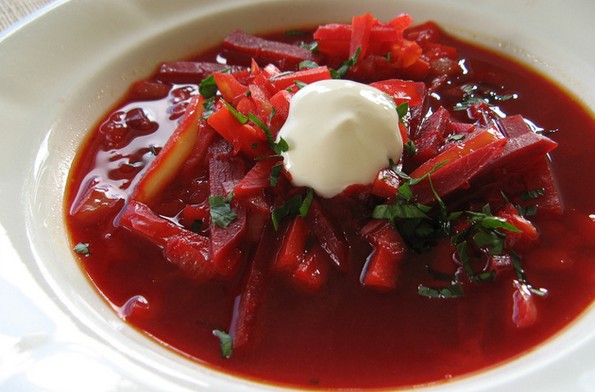
7. The formation of verbs from the names of the color of vegetables.
What is this vegetable? (Cucumber)
What colour is he? (green)
You can say about it - cucumber is green.
Why? (because he is green)
What else is green at the garden look into the picture.
Tomatoes ......... blush
Peas ............ .. green
Cabbage ......... ... green
Pumpkin ............. yellow
Eggplants ...... .. shine
Vegetables kids sown in spring.
Then, they walked well with water
But weeds on the beds rose.
Eat with the root of them, kids.
9. Guessing mysteries on vegetables
What did we dig out of the ground, frivo, cooked?
What are we on the stoves baked, ate and praised? (Potatoes)
Long, green - good salty,
Good and raw, who is he? (Cucumber)
Red nose in the ground is losing, but a green tail outside.
We do not need green tail, you only need a red nose. (carrot)
Slap a close house for two halves.
And fell on the palm, round beads. (peas)
Everyone loves me, but as stripping
Gorky tears spill (onions)
The child's room
In a hundred diaper. (cabbage)
10. Fingering gymnastics
Learned two nuts, between fingers roll
It will help us at school, write letters.
Lexico-grammatical lesson in the preparatory for school speech therapy group on the topic "Vegetables". The material selected for classes corresponds to the age of children is accessible to understanding, saturated with the game and clarity, implies the active activities of children. A presentation, artistic word, speech exercises, which contributed to the accumulation and clarification of the children's dictionary. Attention was paid to the formation of skills in children learning activities: Skill listen and hear the instructions of the teacher, work at a certain pace.
Lexico Grammatical lesson on the topic: "Vegetables"
Integration of educational areas:
- "Cognitive development",
- "Socio-communicative development",
- "Physical development"
Software tasks:
Speech development:
1. Consolidate and intensify the dictionary on the lexical theme "Vegetables".
2. Exercise in education and speech in speech nouns with a diminutive and magnifying value
3. Continue to learn to respond to the questions.
Cognitive development:
1. Develop observation, attention, thinking, connected speech.
Socio-communicative development:
1. Continue to work on the upbringing of benevolent relationship between children.
Physical development:
1. Develop a fine motility of fingers.
2. Develop the ability to coordinate with movements.
Equipment: Items with a picture of vegetables, Scene Picture "Vegetable", Vegetables (tomato, cucumber, cabbage, carrots, potatoes, onions, garlic, zucchini, eggplant, pepper, radishes, turnip, radish, pumpkin).
Structure occupation
1. Open entry into operation.
Game "confusion"
Children are invited to name vegetables on the contour image, superimposed on each other.
2. Enterprise-organizational stage.
How to call it all in one word?
Where grow vegetables?
What vegetables do you see in beds?
Who plays vegetables in the garden?
Why do people grow vegetables?
When are harvesting vegetables?
What can be cooked from vegetables?
3. Motivation on activities.
Children are invited to guess riddles:
He never offended anyone in the world.
What are the adults and children cry? (onion)
It is round and red, like the eye of the traffic light.
Among the vegetables there is no juicy ... (tomato)
In the summer in the garden fresh, green,
And in winter in a barrel strong, salty. (cucumbers)
Red nose in the ground is losing, but a green tail outside.
We do not need green tail, only a red nose is needed. (carrot)
In the course of guessing, pictures depicting vegetables are exhibited.
4. Expansion of knowledge available:
What do you think vegetables are all the same or different?
What is the difference? (color, shape, size)
Imagine that we fell into the garden to a small gnome, all the vegetables are small and call them gently.
Game "Nazis Laskovo".
But the giant is not a garden, but a greasy, huge vegetables grow there. How would you name them.
Game "Big - small"
Guys, do you want to help our friends gather harvest from their gardens?
You need to remember what actions need to be performed to collect vegetables.
Game "Collect the harvest".
Children call words - actions that are performed when collecting potatoes, carrots, tomatoes, cabbage, etc.
You are great, many vegetables collected. I suggest you play the game "one - a lot" and call, what vegetables you have collected.
(The speech therapist calls vegetables in units, children in MN).
5. Dynamic pause.
Game "Cups - Forests"
The speech therapist calls vegetables, if it grows in the ground, the children get squatting, if they stand on the ground on the socks, raise hands up.
6. Reading a poem.
The speech therapist reads the poem and asks the children to answer the question at the end.
What grows on our bed?
Cucumbers, sweet peas,
Tomatoes and dill
For seasoning and for samples.
There are radish and salad
Our bed just treasure!
But watermelons do not grow
Here.
If you listen to you carefully,
I remember necessarily.
Respond to in order:
What grows on our bed?
7. Practical work.
Children are invited to perform hatching on the topic "Vegetables"
8. Open output.
Making lotto "Vegetables". Children are invited to familiarize themselves with the new game and play.
Bikmaeva A.N.,
teacher speech therapist
During classes based on didactic games, developing the mental abilities of children, the knowledge of preschoolers on the topic "Vegetables and fruits" is specified. The class is used artistic word, as well as simple subject models that contribute to the relief of perception and systematization of the knowledge gained.
Attention! Preliminary slides are used exclusively for informational purposes and may not provide ideas about all presentation capabilities. If you are interested in this work, please download the full version.
Software content:
- Teach children carefully listen to the educator and answer questions to the simple proposal;
- Teach children based on elementary models to navigate in the outside world;
- Create conditions for the formation of the ability to draw conclusions and simple conclusions;
- Develop the thinking of children, attention, imagination and perception;
- Develop the speech of children;
- Develop cognitive activity by incorporating subject models;
- Bring up a respectful attitude towards comrades, listening to their answers to the end;
- Form the skills of correct posture;
Materials for the lesson: Cards with the image of a garden and a fruit garden in the form of patterns of models, subject pictures of vegetables and fruits; ball; puzzles; Pieces of vegetables and fruits.
Prior work: Conducting classes with the surrounding world, training children's work with models, didactic games With models.
Structure occupation
- Guys, you like to play. I have many different games for you. But first I invite you to the table, look carefully on the cards, how do you think they are denoted? (garden and fruit garden). What is shown on these pictures? (vegetables fruits). Please decompose these pictures to the desired scheme (the game "Spread correctly").
- Well done! Sit on the chairs.
Slide 2. Vegetables and fruits are plants that grown people. Caring for them.
Slide 3.You correctly noticed that vegetables grow in the garden on the garden. And now I am guys, guys.
I want to make a riddle.
Slide 4. Riddles about vegetables:
Golden and useful,
Vitamin, although sharp,
His bitter taste has ...
Burns ... not lemon.
(Onion)
How to bed under a sheet
Swallowed a scrabble -
Zelets remote
Delicious vegetable is small.
(Cucumber)In a green tent.
Blogs sleep sweetly.
Many round crumbs!
What is it? (Polka dot)For curly khokholok
Fox made of mink tops.
To the touch - very smooth,
Taste - like sugar sweet.
(Carrot)Lacetakes on the fold - Green patchwork,
The whole day on the stomach is not happy about the garden.
(Cabbage)How about our bed
Rose riddles
Juicy yes large
These are such round.
In the summer weeze
By autumn blusted.
(Tomatoes)
- Guys tell me what grows in the garden? Slide 5. Right, fruits and fruit trees. Listen to the riddles about fruits.
Slide 6. Riddles about fruits:
Do you want to eat
Ball with a peel from plush?
Unusual I, not smooth,
But useful, juicy, sweet.
(Peach)There is a fruit in the saddle,
He is sweet, like honey,
Rumba, like Kalach,
But not round like a ball,
- He's under the leg itself
Stretched a little.
(Pear)I am strong, crunchy,
Miracle Present.
Yellow and red -
Skin satin.
And still ruddy
Children all welcome!
(Apple)What a lady such
Looks from the branch, not blinking.
Blue Sarafan on Divo.
Guess? It - ... (Plum)Was green little
Then I became scarlet,
I am soooked in the sun
And now I am ripe.
(Cherry)It happens every year:
In the spring, he blooms,
And as if the sun is honey,
Its fragrant gentle color.
Aromaten he has come
And it looks like a sunshine.
Attracts bees and wasps
My favorite … (Apricot)
- Well done! Slide 7. And what we do with vegetables and fruits. When do they ripen?
- Guys, let's sit on the carpet and play the game "One - a lot." For example, I say: pear - you answer pears; lemon - lemons; plum - plums; etc.
- Guys, what do you hear the last sound in the Word, when are we talking about a lot about fruit? (We hear sounds - s). Let's say this sound together.
- Sit back. And where else can you meet vegetables and fruits? Slide 8. Vegetables and fruits are bought in the market or in the store.
- Is it possible to eat unmeed vegetables and fruits? Why?
- Is it possible to take vegetables and fruits with unwashed hands? Why?
Slide 9. Before use, vegetables and fruits wash. Imagine that guests came to you, they must be treated.
- Let's get up in a circle and play the game "Consumption" (game with ball).
Children get up in a circle. I am leading, throwing the ball, and I ask: "What kind of orange juice?", The child is replied - orange, ", etc. Should play with each child.
- Guys, look carefully, we have all the same fruits? (not)
- What are the difference in fruit from each other? (shape, color, size)
Slide 10. Guys, what color fruit? (red, yellow, blue, orange, etc.)
- How to say about the color of fruit in one word? (Multicolored).
Slide 11. What form can be vegetables and fruits?
Slide 12. How do fruits and vegetables differ in size? (large, small) (slide 12).
- Well done boys! Now the game for the most attentive. Look at the screen. Tell me what is superfluous? Slides 13, 14.
Slide 15. Tell me, what form can be vegetables?
Slide 16. What form can be fruit?
- Well done! And in conclusion, I prepared you "delicious" game. The game "Guess what ate?". Children cover their eyes. The educator invites them to try pieces of vegetables and fruits. They must define them taste and call.
Well done guys, you were attentive and friendly to each other in games. What games did you like best? Why? What games do you teach play your friends and parents?
More abstract classes in kindergarten:
Open session to familiarize themselves with the world's "vegetables and fruits" (junior age)
Gaming activities in the first youngest group "Fluffy assistants"
Integrated Life Safety Basics for Senior Preschool
Unconventional forms of work with children using non-standard equipment
Integrated ecology lesson "To visit colors"
| cognitive | cognitive activity
| occupation | abstract classes | children | child | senior | porn older | groups | groups of songs | such | different | different countries
| vegetables | crafts from vegetables | fruits | vegetables and fruits | childish | kindergarten
| Picture student | Cognitive session with children senior group Such different vegetables and fruit kindergarten

